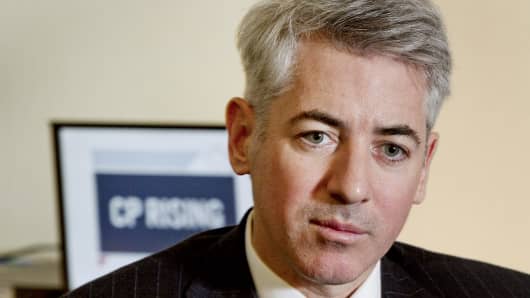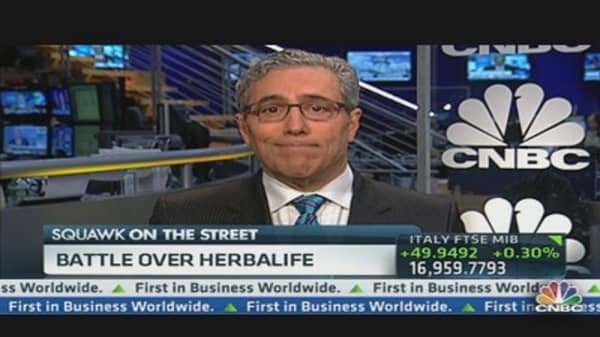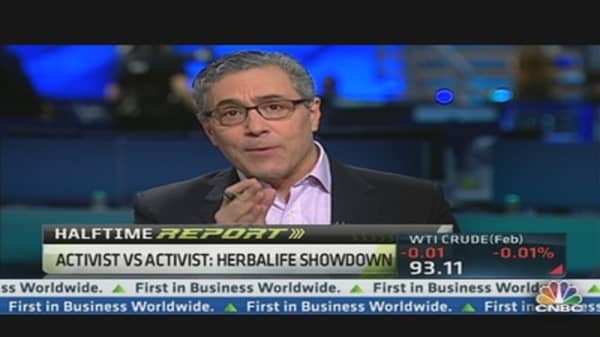Herbalife believes the majority of its distributors are discount buyers, who become distributors in order to purchase their favorite Herbalife products at a minimum discount of 25 percent (either directly from the company or from their upline distributor/supervisor). In addition, some of these distributors will also share with, or retail the products to other friends, family, and customers.
The percentage of product of any multi-level marketing company consumed by its distributors is substantial. This is not surprising since consumers who are enthusiastic about the products become distributors in order to purchase at a discount and possibly to share and sell the products to others. In addition, in order to minimize the risk of product being accumulated by distributors, the company has policies in place such as the 70% Rule, the Ten Customer Rule and the Buy Back policy.
Several other points:
Chapman said he believes even if U.S. regulators took action against Herbalife, the U.S. is only 20 percent of its business. Again -- true, but the U.S. being the U.S., there is a possibility any action in this country could trigger a domino effect in other parts of the world. China already bans multi-level marketing. (Herbalife and others operate differently in that country.) And a Belgian court has ruled Herbalife a pyramid scheme. The company is appealing.
(Read More:
Selling the American Dream: Investigations Inc.)
Also, Chapman says he believes the company is strong enough to effectively brush off any residual effects of new rules and regs, including additional disclosure requirements. That's unclear. Herbalife and the Direct Selling Association, which represents the industry, lobbied hard against something called the Business Opportunity Rule. This rule would have required disclosure so onerous that Herbalife warned in its SEC filings that if implemented "in its original form, would negatively impact our U.S. business." In the end, after five years of lobbying, all multi-level marketing was left out of the final rule when it was implemented early last year.
In other words -- and plenty of people disagree with me on this -- any change in disclosure or rules could do the equivalent to multi-level marketing that a regulatory clampdown did to for-profit education: The ultimate in hard business model resets.
My bottom line: Don't expect the final chapter anytime soon.
—By CNBC's Herb Greenberg; Follow him on Twitter:@herbgreenberg and Google
Subscribe to Herb at http://www.facebook.com/herb.greenberg
Questions? Comments? Write to HerbOnTheStreet@cnbc.com
Disclaimer
CORRECTION: An earlier version incorrectly suggested that Chapman had cited the "pyramid scheme" allegations in his investment strategy for Herbalife.






